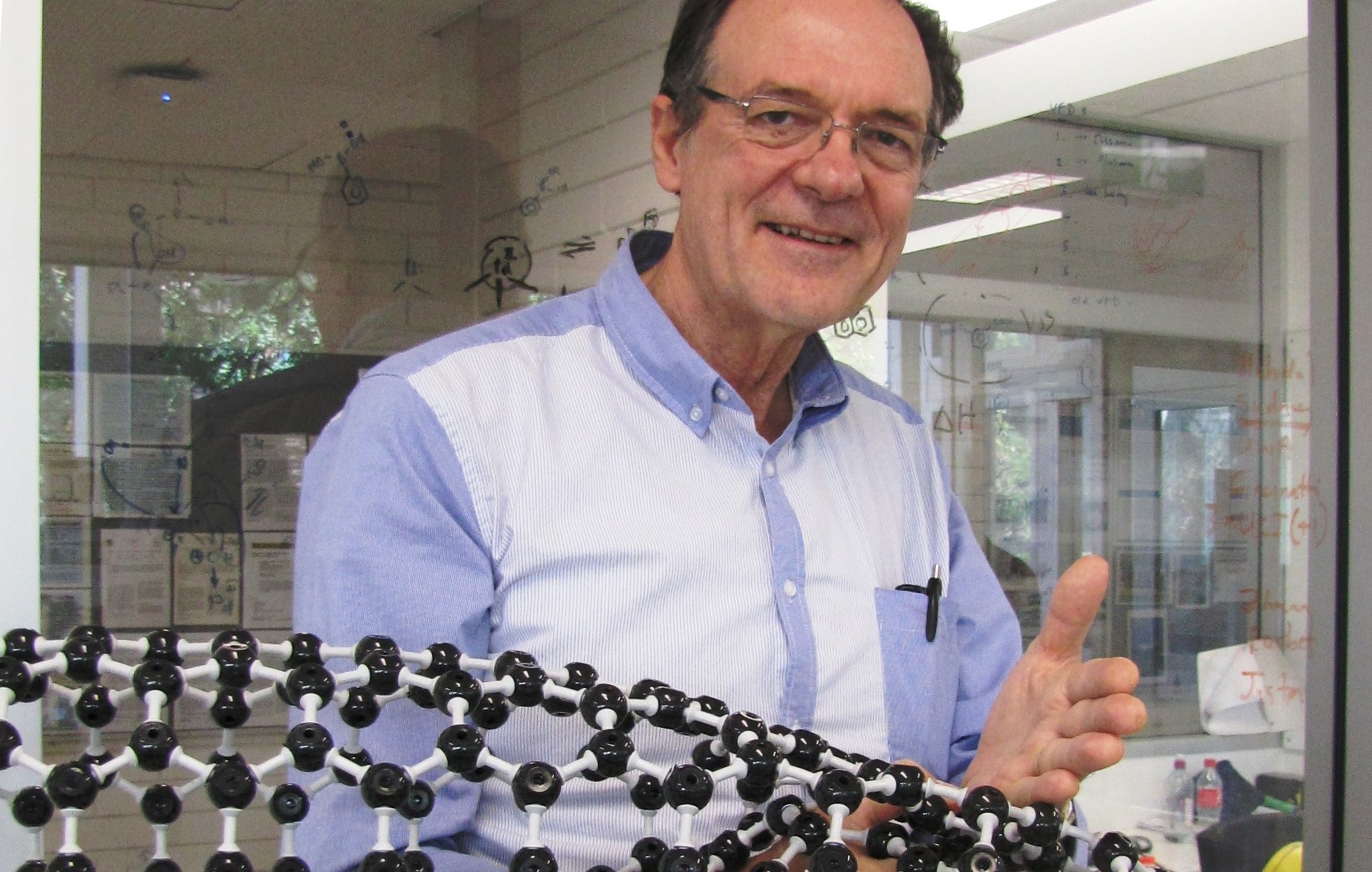News release
From:
*Recording now available, see link below*
The inventor of the ‘unboil-an-egg’ machine, Flinders University’s Professor Colin Raston, has cooked up a new use for his Ignobel award-winning device, and says it will revolutionise the manufacture of solar panels, targeted cancer drugs and super-precise digital devices.
For more than forty years, scientists have seen enormous potential in carbon nanotubes - minute, tubular cylinders of carbon atoms with extraordinary mechanical, electrical, thermal, optical and chemical properties – but that potential has never been realised, until now.
Colin’s team has shown that the thermos flask-sized Vortex Fluidic Device (VFD), as the unboil-an-egg machine is officially known, can be used to slice carbon nanotubes accurately to an average length of 170 nanometres using only water, a solvent and a laser.
Previous methods of slicing carbon nanotubes involved complex oxidation procedures and nasty chemicals. They produce random sized lengths of entangled nanotubes, allowing only relatively crude applications and constraining their use in drug delivery and complex electronics. That’s because the sliced tubes have inconsistent properties, but Colin’s simple, cheap method has overcome these hurdles.
Join us for this online briefing, when Colin will explain the new work and its implications.
Speakers:
- Professor Colin Raston is Professor of Clean Technology in the School of Chemical & Physical Sciences at Flinders University
Note: Colin's PhD student, Kasturi Vimalanathan, who played a key role in developing the cutting process, will be on-hand to answer questions during the Q&A session
Date: Friday 11 March 2016
Start Time: 11:00am AEDT
Duration: 31 mins
Venue: Online



 Australia; SA
Australia; SA


